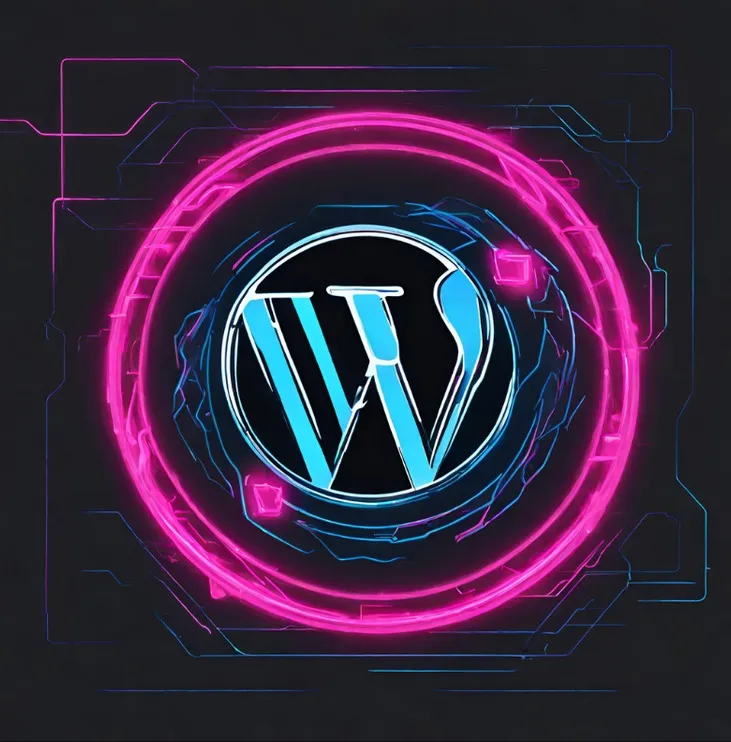
Over the past two decades, WordPress has solidified itself as a mainstay in the digital landscape. But how does it stack up in 2024 for new web projects?
Here’s an insight based on four years of professional experience with WordPress.
Benefits of WordPress
One of the most significant advantages of WordPress is its accessibility. Thanks to the one-click installation offered by most hosting services and a user-friendly interface, even those without a technical background can independently design and manage their online presence.
Moreover, with plugins like Elementor, users can visually customize their entire website using a drag & drop editor. This feature enables rapid implementation of both text and design changes by individuals lacking technical expertise, streamlining the process of content addition or iterative web page optimization. It’s particularly useful for tasks like quickly setting up a new landing page for an ongoing email campaign.
Another key benefit is the robust WordPress community that has grown around the platform over nearly two decades. Virtually any problem or question you might encounter can likely be solved with a quick search, yielding numerous blog posts and YouTube tutorials to guide you.
The extensive array of WordPress plugins further allows for easy site expansion and the addition of new features. When the GDPR led to warnings against several website operators for using Google Fonts without user consent (https://www.datenschutz.org/google-fonts-dsgvo/) , this fate could be swiftly avoided by others with an adjustment in Elementor and by employing the Disable & Remove Google Fonts plugin, all without needing a web developer. Most functionalities are covered by plugins that users can configure themselves.
Challenges of WordPress
However, this flexibility comes at a cost. Every user request requires data retrieval from the database, resulting in dynamically generated responses that can slow down the site and negatively impact SEO. Caching plugins like Hummingbird become essential in speeding up your site again.
The fear surrounding plugin updates is not unfounded either. It’s crucial to back up your entire website before applying updates, as I’ve personally experienced site outages post-update on more than one occasion. The only recourse in such situations is to revert to a previous version and wait for the plugin’s new release. Backup plugins like UpdraftPlus are, therefore, indispensable.
Another issue is the complexity of drag & drop editors like Elementor and their interaction with other plugins. A routine update to a sub-page once resulted in the page becoming inaccessible due to a glitch in the saving process. The only solution was to reset the website and attempt the changes again, highlighting the importance of daily backups.
Alternatives
Website Builders
For projects with simpler technical demands, website builders like Jimdo offer a straightforward solution. While they might lack the functionality and flexibility of WordPress, they significantly simplify the creation process for basic sites, serving as an ideal option for digital business cards.
Static Site Generators
Websites powered by WordPress often face speed disadvantages. If speed is a priority and enlisting a web developer for layout changes is viable, static site generators like Astro become appealing. SSGs enable the efficient implementation of complex designs while ensuring top-notch speed.
Utilizing an SSG requires initial design and development by a professional developer. Website content, such as text or blog posts, can be managed through a headless CMS, similar to WordPress. However, these places must be defined in advance - for a change editable spaces or any visual change, a developer is necessary again.
Conclusion
Due to its flexibility, ease of use, and extensive support community, WordPress continues to be a top choice for many web projects. In 2023, 45.8% of all websites (W3Techs Survey 2023) were powered by WordPress, a trend that is likely to persist.
A website builder is preferable for straightforward digital business cards without plans for future expansion. Conversely, for more complex sites, investing in WordPress from the outset may be more prudent.
Should your site not require frequent updates and aims to stand out through speed or unique design, considering a Static Site Generator might be worthwhile.
Choosing the right platform for your web project involves careful consideration of your needs and resources, aiming to select a solution that not only meets current demands but is also sustainable in the long run.